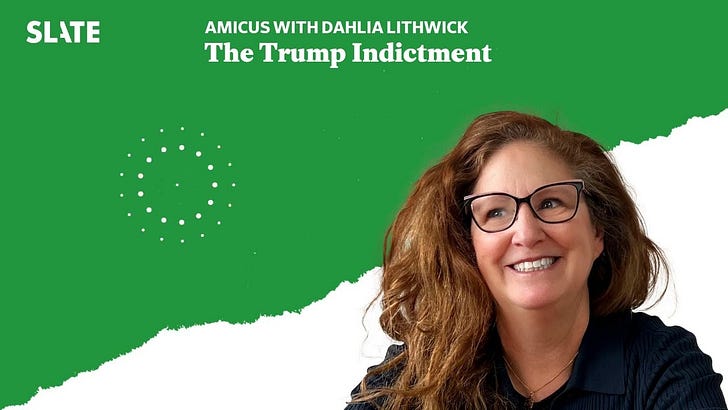This past week, we finally had good news from the Supreme Court (SCOTUS) on voting rights!
It came in the Allen v Milligan decision:
By a vote of 5-4 on Thursday, the justices issued a major voting rights decision, ruling that Alabama’s new congressional map likely violates the Voting Rights Act. But even more significantly, the court declined an invitation to adopt an interpretation of the act that would have made it much more difficult to challenge redistricting plans on the ground that they weaken the collective voting power of Black people.
The law at the center of the court’s decision in Allen v. Milligan is Section 2 of the Voting Rights Act, which bars election practices that result in a denial or abridgement of the right to vote based on race. [my emphasis in italics]
The Supreme Court at the moment is not just political, but partisan-political in the service of the Republican Party’s current insurrectionary, anti-democracy position. It is a political institution in same sense that Congress and the Presidency are established as institutions of government in the US. And that means they have been strikingly hostile to laws protecting voting rights.
But current highly partisan version of SCOTUS may be paying attention to the public outrage at their partisanship, even though Democratic Sen. Sheldon Whitehouse still often seems like a lonely voice in speaking out against blatant SCOTUS corruption, symbolized most dramatically at the moment by Clarence Thomas’ relationship to his sugar-daddy, Texas billionaire Harlan Crow.1
Election-law expert Rick Hasen talked with Dahlia Lithwick on a recent podcast about the Allen v Milligan decision.2 (Starting at 18:00 in the video) If you have time - and some tolerance for in-the-weeds legal-geek reporting - their discussion is very informative.
Hasan expresses great surprise at the position taken by John Roberts in the Allen decision because it is a dramatic departure from a strong trend on his part dismissing the need for legal protections against racial discrimination. He also suggests that Roberts in that decision is acting out of concern for the Court’s legitimacy. Whether that will be an exception or not remains to be seen.
Charlie Pierce describes how surprising Roberts’ position on this one was in his signature style: “One is reluctant to speculate, but it is entirely possible that Chief Justice John Roberts and Justice Brett Kavanaugh were briefly replaced on the Supreme Court by cleverly designed duplicates.“3
Aaron Rupar and Noah Berlatsky expressed their surprise this way (perhaps a bit over-enthusiastically):
The Supreme Court last week refused an opportunity in Allen vs. Milligan to completely gut the Voting Rights Act. In doing so, the hard right-wing court effectively prevented the Republican Party from terminating multi-racial democracy. The GOP plan to impose one-party rule through judicial fiat lies in tatters, and what has seemed like an inevitable march towards authoritarianism suddenly looks a lot less inevitable.4
But we can’t take this decent ruling as a drastic change in direction at this point. As Lithwick and Hasan discuss, it could be a political buffer against a disastrous rightwing ruling that may soon come with the Moore v. Harper decision on the radical-right “independent state legislature theory” (ISLT). A SCOTUS decision supporting the ISLT concept would make it far easier for Trump’s party to successfully carry out an election-subversion scheme similar to the one they attempted after the 2020 election.
And, as Franita Tolson warns:
Despite my positive emotions about the decision, it is also important to note that Roberts also uses the occasion to reaffirm Supreme Court decisions that are very conservative on race. Milligan reaffirms the Court’s prior limits on the consideration of race in drawing district lines. States are still prohibited from adopting maps in which racial considerations predominate without a compelling reason. It is just that, in the Alabama case, it is clear that this line between considering race and being motivated by race had not been crossed.5
Burnett, Elena & Brown, Ashley & Summers, Juana (2023): A look at Harlan Crow, the billionaire central in Clarence Thomas controversies. NPR 05/04/2023. <https://www.npr.org/2023/05/04/1174083586/a-look-at-harlan-crow-the-billionaire-central-in-clarence-thomas-controversies> (Accessed: 2023-11-06).
The Trump Indictment-Amicus With Dahlia Lithwick. Slate YouTube channel 06/10/2023. (Accessed: 2023-11-06).
Pierce, Charles (2023): Jesus God, How Bad Does a Voting Rights Act Violation Have to Be for John Roberts to Notice It? Esquire Politics Blog 06/09/2023. <https://www.esquire.com/news-politics/politics/a44139267/john-roberts-voting-rights-act-opinion/> (Accessed: 2023-12-06).
Rupar, Aaron & Berlatsky, Noah (2023): In shocking twist, Roberts and Kavanaugh block the march toward one-party rule. Public Notice/Substack 06/12/2023. (Accessed: 2023-12-06).
Tolson, Franita (2023): A Few Preliminary Thoughts on Allen v. Milligan. Election Law Blog 06/08/2023. <https://electionlawblog.org/?p=136693> (Accessed: 2023-11-06).


